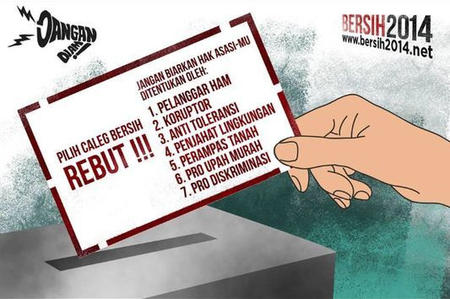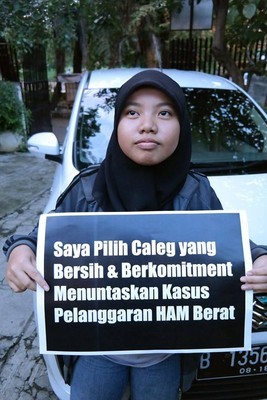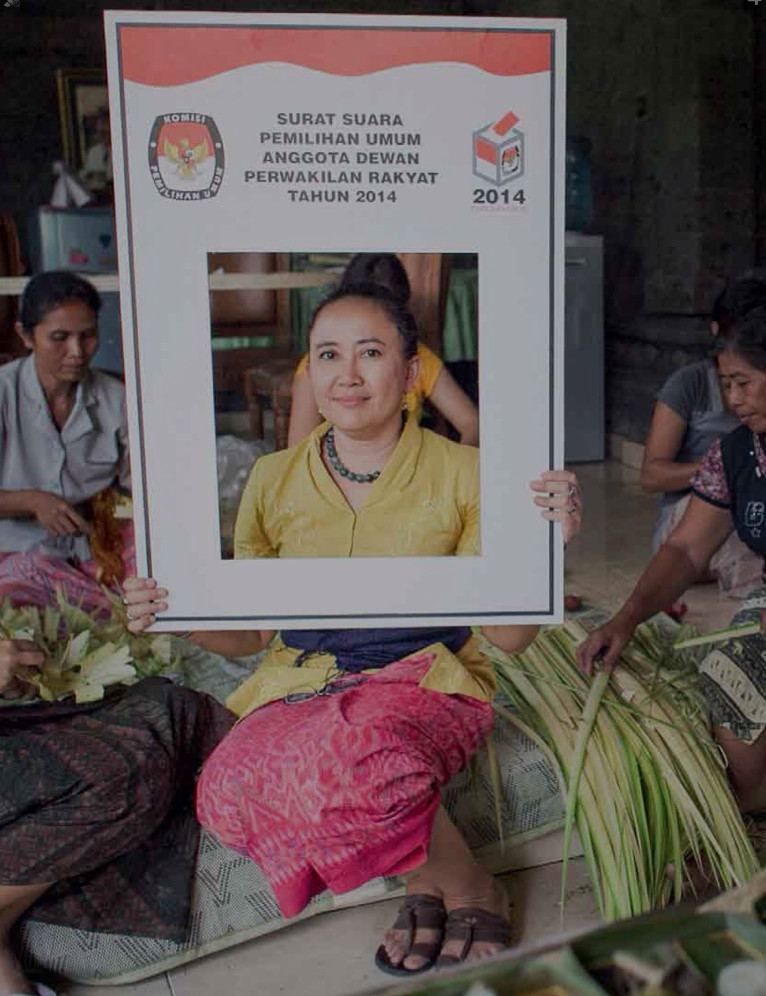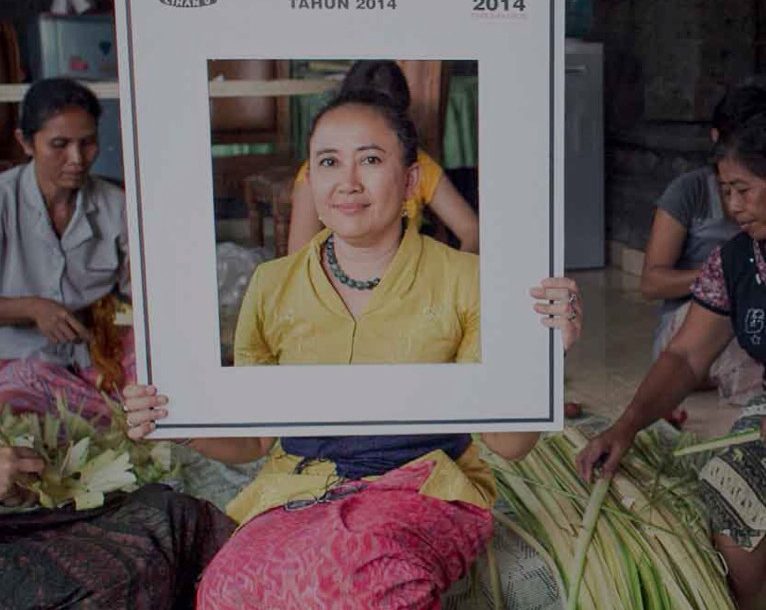
Bersih2014 lends its moral credibility help voters select candidates. This campaign poster reminds tells voters that by choosing Bersih candidates, voters will avoid human rights abuses, corruptors, discriminations and environmental criminals.
Ten years ago, Demos, a Jakarta based NGO, sent out a political call to arms: civil society had to enter politics.
It was 2004, and Robison and Hadiz had just released their influential book, Reorganising Power in Indonesia, which argued that democratization had been hijacked by oligarchy. Demos’ writings and the Hadiz and Robison book were widely studied and discussed within the activist community. From these discussions emerged a slogan “Go Politics” which called for activists to run for election at the local and national level.
It’s been ten years but why hasn’t “Go Politics” made an impact on the electoral landscape? There are a number of reasons.
Firstly, social activists aren’t that great at electoral politics. They don’t have the requisite experience and knowledge to navigate the political world. We can do advocacy for the marginalized but that’s different from building a constituency and converting those skills over hasn’t been easy. Activists might have long-term relationships helping communities with their social problems. But when activists enter politics, it’s still the old political parties and the cashed up candidates that win their votes. In advocacy, activists don’t involve politics. They don’t strategically design their advocacy to win political support in the long term. They even avoid politics to defend peoples’ rights and public issues. It’s this lack of political vision in their advocacy work that contributes to their defeat.

At the ballot box, voters don’t choose activists. In this Bersih2014 campaign poster, a voter declares she’ll pick a candidate who is clean and will resolve human rights cases.
Secondly, activists can’t compete with the resources of dominant local elites. They are more experienced, better networked, and have greater financial resources. They have the skills needed to attract voters and political parties alike. It’s a skill to disburse money and to buy votes effectively. Activists don’t have party machines at their disposal, particularly as party organisations are still controlled by old elites. They don’t have the networks to mobilise witnesses to watch the ballot counting and make sure elections organisers aren’t diverting votes to candidates in exchange for bribes. The ruthless competition isn’t just between parties either: it’s between candidates within parties fighting over the same constituency.
Thirdly, activists don’t have the help of their traditional institutions, principally because of the strong non-partisan stance of Indonesian civil society. Most social activists think of parties and politicians as the enemy although they are well accustomed to dealing with them in policy-advocacy. This is an attitude rooted in the New Order where civil society perceived politics as bad and to be avoided. The only opposition permitted by the New Order were student activists and NGOs that had no association with political parties. Without support from NGOs, activists are cut off from their main resources – from analysis, reports and the grassroots. Their only option is to join political parties and act like ordinary politicians. Some even support elite interests against their former NGO colleagues.
The non-partisan stance of civil society is partly because of international donors, an important part of NGO financing. Programs or initiatives that are explicitly political make donors skittish. Even involving politicians in development programs is not permitted. This maintains the gap between civil society and political society. Ironically, numerous social programs and development projects supported by international donors are embedded in politics and require support from political institutions. Foreign aid institutions, particularly the big government agencies like USAID or Ausaid, want to avoid allegations of domestic political intervention, but this is also the attitude of private donors. The effect is to create an apolitical civil society while allowing oligarchy to become ever more entrenched in political institutions without significant resistance.

Bersih2014 candidate, Agung Putri Kartika, former Director of human rights NGO Elsam is running as PDI-P candidate in Bali. Photo Credit, Tempo Magazine.
To remedy the problem, a number of NGOs including Kontras, Indonesia Corruption Watch (ICW), The Indonesian Forum for the Environment (Walhi), The Consortium for Agricultural Renewal (KPA) and the Centre for the Study for Law and Policy (PSHK) launched Bersih2014 which promotes the best and most trustworthy candidates to voters. In the future, the Bersih movement will make a significant contributing towards putting the best people into political institutions and parliament. Currently the coalition is only four NGOs, but we span four sectors: Human rights (Kontras), anti-corruption (ICW), the environment (Wahli) and land rights and peasants (KPA). We are growing daily, developing a bigger network locally and across more issues.
The Bersih movement will retain our relationships to former activists who run for parliament and political positions in government. Activists-turned-politicians are accountable to NGOs that support them in the election. They can bring civil society issues to the public eye. They can even support civil society’s agenda. Because of our endorsement and contribution during the election, former activist will not betray their previous NGOs. They owe their support to civil society. In this way, the Bersih movement makes politics the strategic arena for advocacy.
Bersih2014 is a new movement. We don’t yet know how effective we will be. But this movement is a promising effort to bridge between political and civil society. This movement will build a coalition with civil society organizations across Indonesia to endorse the best candidates who will serve the people’s interest. Bersih2014 will not only ease the tension between NGOs and politicians, but provide a pathway for more strategic advocacy in the future, to fight against oligarchy and to reclaim our democracy.
Danang Widoyoko is a former coordinator for Indonesian Corruption Watch.
 Facebook
Facebook  Twitter
Twitter  Soundcloud
Soundcloud  Youtube
Youtube  Rss
Rss 